How to put a proposal to a vote in DecimalChain
To make changes to the Decimal blockchain, the developers implemented a decentralized voting protocol.
Any user can submit a proposal to the validators to improve the ecosystem through their personal DecimalChain console.
Log in to your personal DecimalChain console and open the Browser. 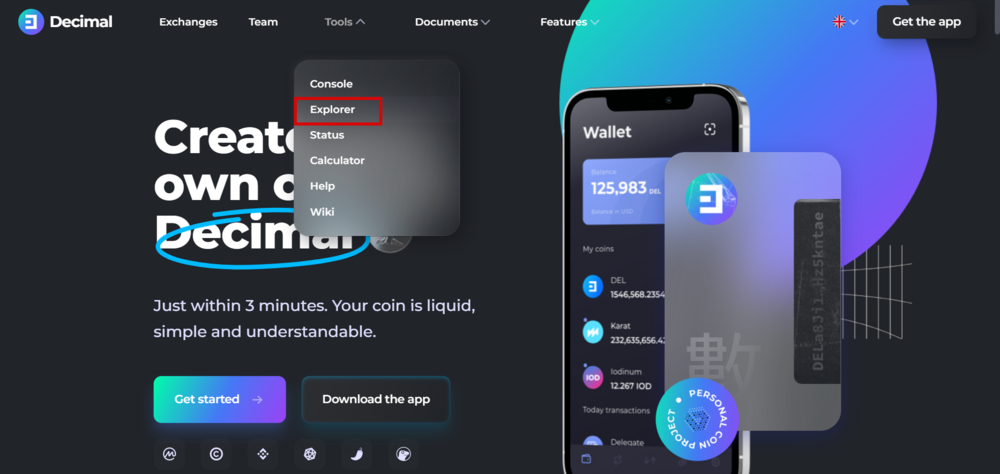
In the top menu, click the “Vote” tab, and you will be taken to a page where you will see the proposals accepted by the validators and the “Add Proposal” button. 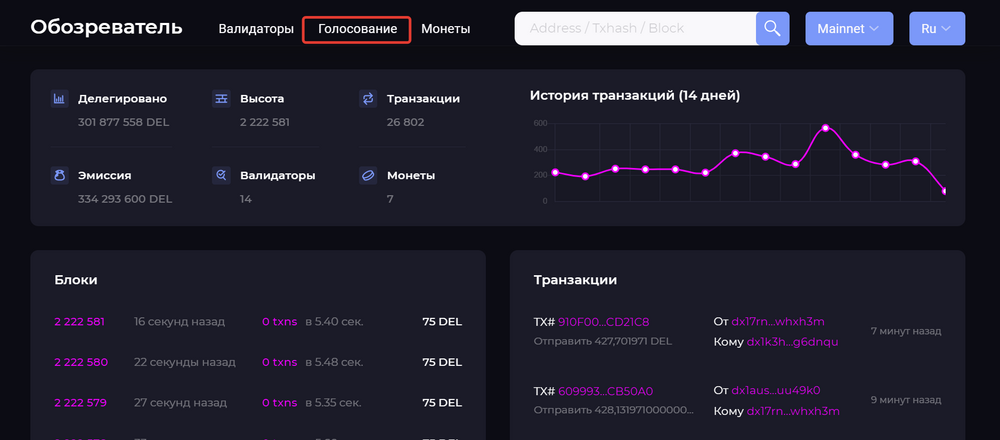
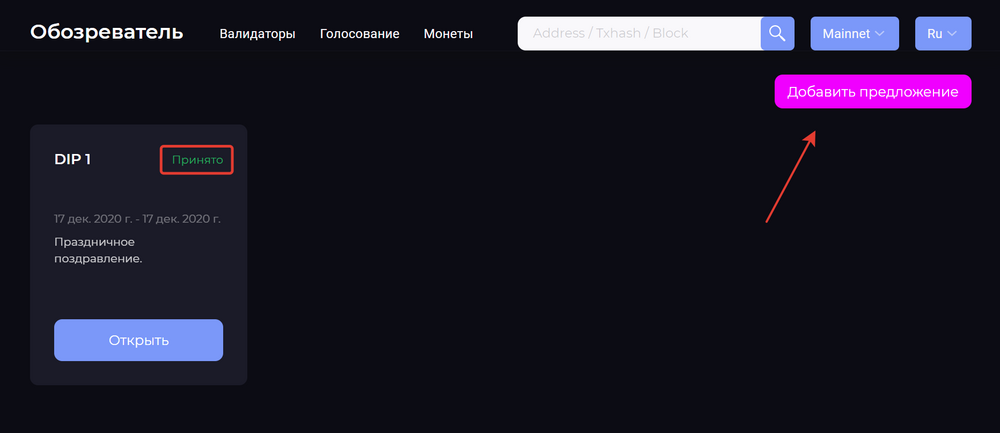
Click the “Add Offer” button and you will see a form to fill out. 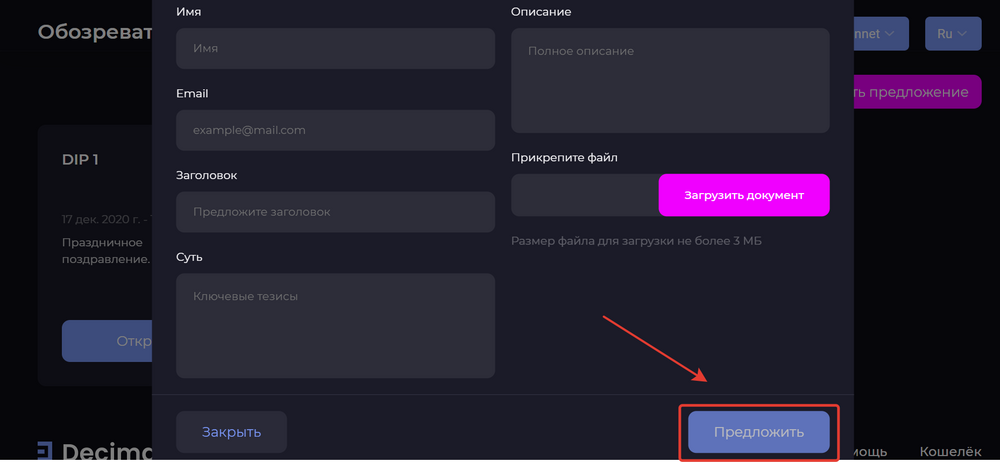
Fill in the form in as much detail as possible, attach the files if necessary, and click “Suggest”. Next, you will receive a response to the email address you specified.
If your proposal is accepted, it will be submitted to the blockchain for a vote by the validators. The nine with the most voting power will make the decision. If ⅔ and more validators vote “Yes”, your proposal will be submitted to the DecimalChain. Otherwise, the changes will be rejected, and the information about the vote and its results will remain in the blockchain forever.
How do I view past votes?
In your personal console, in the “Voting” tab, you can view all the past events.
Open the “Vote” page, and to the right of the “Add Offer” button, you will see the card of the last online event, its serial number and the result (“Accepted” or “Rejected”). To view more information, click the “Open” button on the event card. 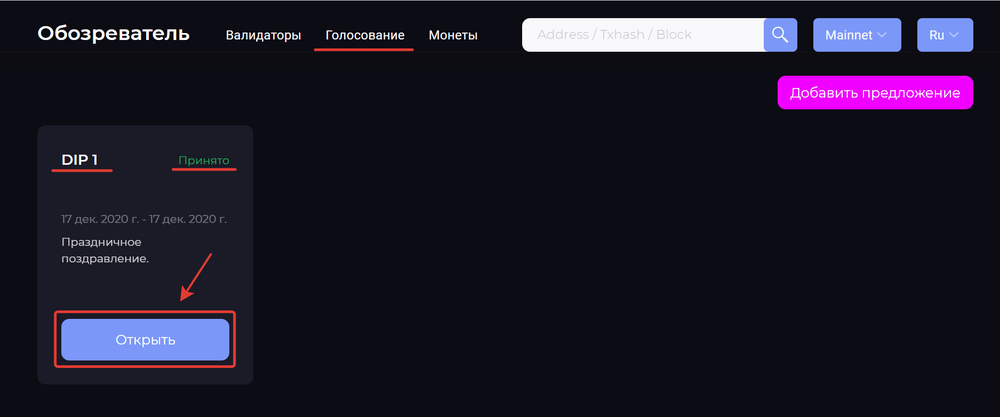
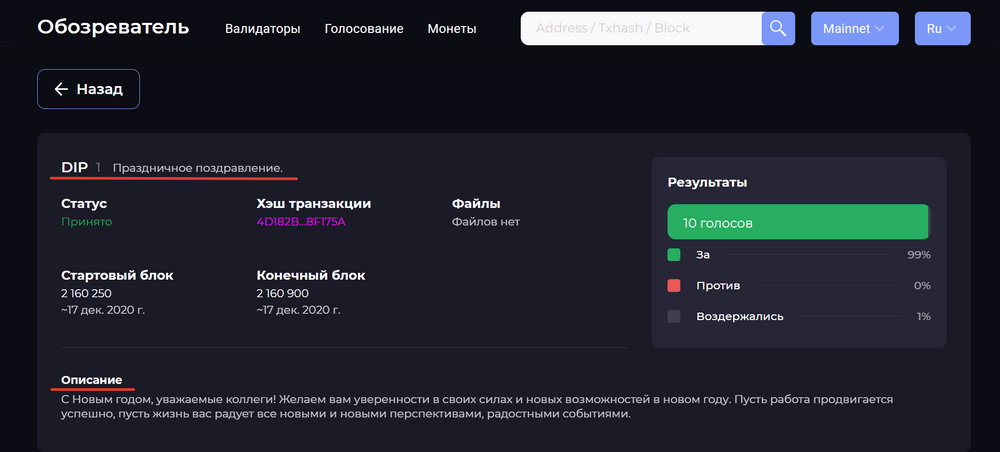
In the title, you will see the voting sequence number, below-the voting status, transaction hash, and files. Below is the sequence number of the block (the starting block) from which the voting among the validators began, and the number of the block (the final block) on which the voting ended.
The voting duration parameter (start and end block) determines the company's SEO when putting your proposal to the vote. For example, the DIP-1 vote lasted about an hour (650 blocks).
Below you will see a description of the proposal and the results of the vote. More detailed results can be seen by scrolling the page lower.